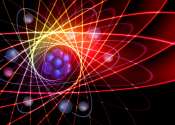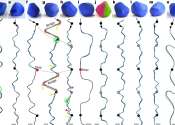AI may soon predict how electronics fail
Think of them as master Lego builders, only at an atomic scale. Engineers at CU Boulder have taken a major step forward in combing advanced computer simulations with artificial intelligence to try to predict how electronics, ...
Jun 22, 2021
0
27









